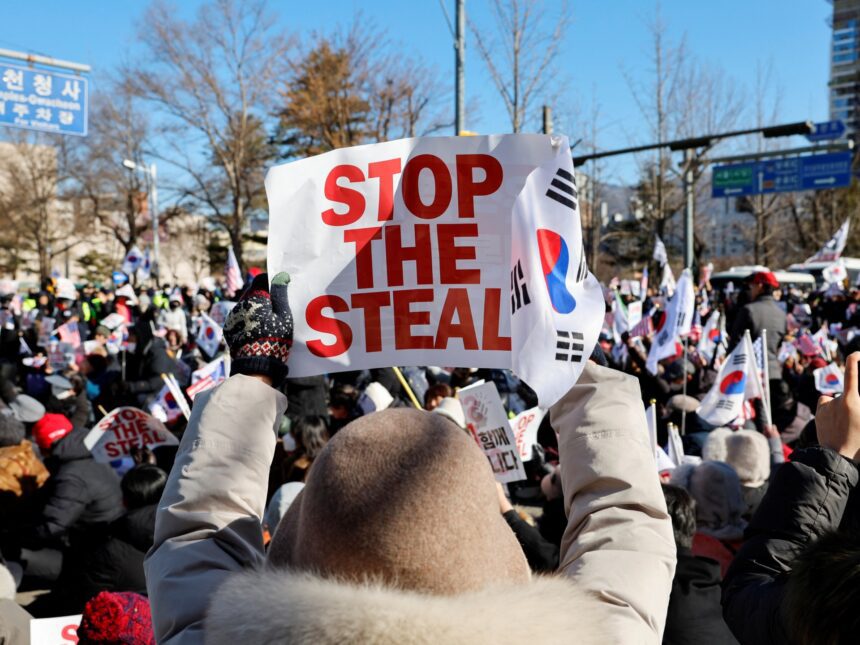Former South Korean President Yoon Suk-yeol has been finally apprehended following a dramatic standoff with law enforcement authorities.
After evading arrest for nearly two weeks in his residential compound, Yoon was ultimately taken into custody by hundreds of police officers who overcame the barricades set up by his security team. This comes after his controversial declaration of martial law on December 3, which led to his impeachment and removal from office.
Yoon, a former prosecutor who earned the nickname “Mr. Clean” for his efforts in prosecuting corrupt figures, faced challenges during his presidency, including difficulties in pushing his agenda forward and dealing with personal scandals.
Upon the arrest of Yoon, who now faces charges of insurrection, the political landscape in South Korea has been significantly impacted. Despite the majority of South Koreans disapproving of his actions, support for his party, the PPP, has seen a resurgence in recent weeks.
Despite the turmoil, South Korea remains stable under the leadership of acting President Choi Sang-mok. Choi has reassured diplomats from various nations of the country’s stability following Yoon’s arrest.
The arrest of Yoon has sparked mixed reactions among South Koreans. While some of his supporters protested his detention, others believe that he needs to be held accountable for his actions. The Democratic Party welcomed his arrest as a step towards restoring legal order.
What happens next in the case of Yoon remains uncertain. Authorities have 48 hours to question him, after which a warrant for his formal arrest on the charge of rebellion may be sought. If convicted, Yoon could face severe penalties, including the death penalty or life imprisonment.
In a parallel investigation, the Constitutional Court is conducting a trial to determine the legality of Yoon’s impeachment, which could lead to a new election in the country. The outcome of these legal proceedings will have significant implications for the future of South Korea.









